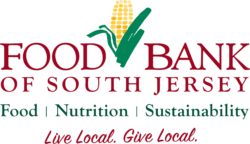Bridging the Gap: Understanding and Addressing Food Insecurity in South Jersey
Exploring Food Insecurity: A Global Challenge
Food is a basic human need, yet it remains an elusive necessity for millions worldwide. Though food insecurity may be defined in multiple ways, they all reach the same common denominator: people suffer from food insecurity when they don’t have enough life-sustaining food to eat and don’t know where their next meal will come from.

Closer to home, one in 14 people – and one in 11 children – are food insecure in South Jersey.
Understanding Food Security
Looking at the reverse, what does it mean to be food secure? According to the USDA, food security is defined when there is access by all people at all times to enough food for an active, healthy life.
A definition from the United Nations’ Committee on World Food Security goes a bit deeper and defines food security as a situation that exists when all people, at all times, have physical, social, and economic access to sufficient, safe, and nutritious food that meets their dietary needs and food preferences for an active and healthy life.
The Far-Reaching Consequences of Food Insecurity
It’s that definition that is utilized by New Jersey’s Office of the Food Security Advocate, the first statewide office of its kind in the country. The definition helps to better define the far-reaching consequences of food insecurity. A lack of access to food creates an effect that impacts the person’s life in many ways:
- Physical Health: Food insecurity can lead to physical health problems, including malnutrition, deficiencies in essential nutrients, weakened immune systems, and long-term health complications.
- Mental Health: Food insecurity contributes to stress, anxiety, depression, and other issues due to the constant worry about accessing adequate food.
- Educational Challenges: Children experiencing food insecurity may find it harder to concentrate in school, affecting their academic performance and cognitive development.
- Economic Challenges: Families experiencing food insecurity often face financial strain, allocating a significant portion of their income to food or health-related costs, which can hinder economic stability.
- Social Impact: It can lead to social isolation or stigmatization, affecting individuals’ self-worth and community interactions.
- Productivity and Development: Adults facing food insecurity might experience reduced productivity at work due to health issues or mental stress, impacting their overall professional development.
- Community Well-Being: Widespread food insecurity can strain community resources and support systems, affecting the overall well-being and cohesion of neighborhoods and societies.
Collaborative Efforts Against Food Insecurity

Addressing food insecurity comprehensively involves ensuring access to food and tackling the various interconnected issues that arise due to this fundamental lack of food security. At the Food Bank of South Jersey, we work with partner organizations and the community to help create sustainable solutions to end food insecurity. By uncovering the underlying factors contributing to food insecurity and working together, we can create sustainable, systematic change that will help community members thrive.
